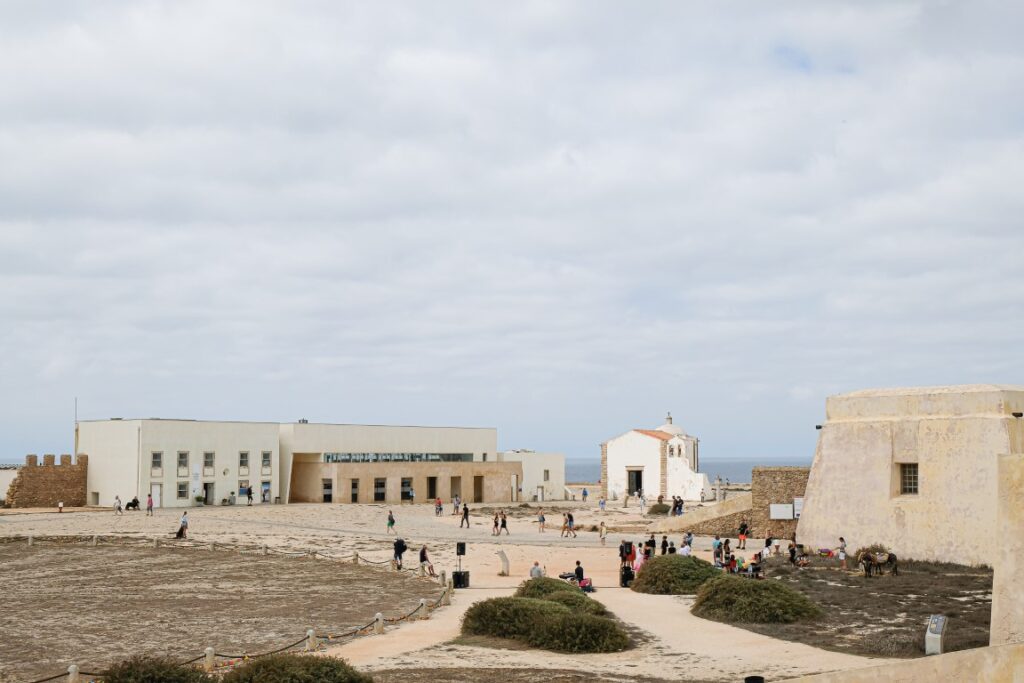Representatives of the cultural heritage sector argue that the State Budget for 2024 (OE2024) should include increased investment in human resources, “a problem that continues to be structural” in museums, palaces and public monuments.
Contacted by the Lusa agency, the president of ICOM Portugal, the Portuguese committee of the International Council of Museums, David Felismino, said he had “positive expectations” regarding the proposal presented by the Government due to the “evident financial reinforcement” in the area of culture.
The OE proposal for 2024, according to the consolidated Report of October 16 that accompanies it, foresees 518,3 million euros of total consolidated expenditure of the Ministry of Culture, excluding RTP, which represents approximately 14 million more than in 2023, of which more than one hundred million euros are for the heritage area, taking into account the expenditure forecast recorded in the budgetary development maps of the Ministry of Culture, for the Museums and Monuments of Portugal EPE and the public institute Património Cultural , which take the place of the Directorate-General for Cultural Heritage (DGPC) from January 01st, and for the Cultural Heritage Safeguarding Fund.
David Felismino highlighted this “significant increase” in the OE for culture, pointing out that “there has never been such a large investment at various levels, particularly in terms of the rehabilitation of movable and immovable cultural heritage”.
On the other hand, he praised the “investment in restructuring the management of museums and monuments, with a budget increase of 57 million euros for the IP and around 52 or 53 million for the EPE”, which will replace the DGPC.
From January 01, 2024, the DGPC will give rise to two distinct entities: the public institute Património Cultural, based in Porto, and the public company Museus e Monumentos de Portugal, both with an obligation to comply with “economic efficiency in costs” and “management by objectives”, according to the Ministry of Culture.
However, the president of ICOM Portugal considers that the Government “could have been more ambitious” in the area of investment in human resources.
“The sector [of museums, palaces and monuments] is very difficult in terms of human resources and generational renewal and recruitment. It is an area that is always depleted”, lamented the person in charge.
According to the president of ICOM Portugal, this “is a structural and structural problem at all levels, from senior technicians, specialists, technical assistants”.
“Above all, there has not been a generational renewal of these staff, in an area that is of central importance in the day-to-day running of these equipment”, he pointed out.
In the same vein, João Neto, president of the Portuguese Association of Museology (APOM), considered that the culture sector could benefit in 2024 “from a favorable economic wave”.
“There is an undeniable financial reinforcement in the 2024 OE. We currently have a strong minister on the Government team, and there is funding from the PRR [Recovery and Resilience Plan], so it would be worth taking advantage”, he assessed, contacted by Lusa.
He also pointed out that “there will be immense challenges to the major restructuring in the area of museums and heritage”, announced this year by the Ministry of Culture.
“The most important thing now is the investment in human resources with skills appropriate to their functions”, defended the person in charge, regarding what he considers essential for the future OE in the area of cultural heritage.
For João Neto “there is clearly a need for reflection to create a strategy on human resources, which is lacking in most museums, palaces and public monuments”.
The Government delivered the proposed State Budget for 10 to the Assembly of the Republic on October 2024th, which will be discussed and voted on in general on the 30th and 31st of this month, with the final global vote scheduled for November 29th.
The Minister of Culture Pedro Adão e Silva is heard in parliament, in Lisbon, about the Government's proposal for the sector on November 09th, at 18:00 pm.



















Comments